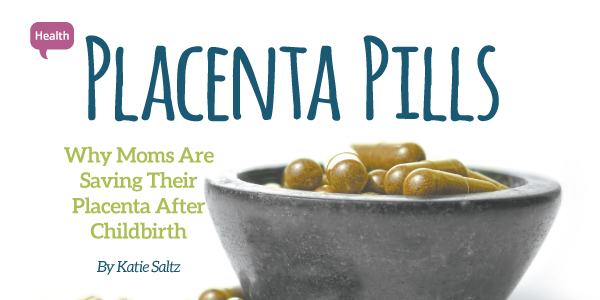Placenta Pills Why Moms Are Saving Their Placenta After Childbirth
By Katie Saltz
You learn in any childbirth class or book about the placenta- the organ that provides nutrients to an unborn baby.
But many women are holding on to this organ after childbirth for their own health.
After the baby is born, the placenta is also delivered and usually treated as medical waste.
But some believe that ingesting the placenta can help with breastmilk production, increase energy levels and decrease the risk of postpartum depression.
A popular way to ingest the placenta is in pill form- it is prepared, dehydrated and placed into capsules for consumption.
Julie Six, owner of The Birth Haven in Lexington, provides encapsulation services and said the process is very safe when performed properly.
The placenta specialist should provide a cooler, transport kit and spill kit before birth.
“Other than the placenta being placed in the provided bags, there is nothing more that the doctor, nurse or midwife needs to do,” she said.
Preparing the placenta can be done in the mother’s own home, so the placenta never has to leave the mother’s sight.
Once the two-day process is complete, Six said the pills are similar to any other a mother might take for health reasons.
“Placenta capsules truly mimic the look of an herbal supplement and each capsule is wiped individually to lessen any taste or smell that may come through,” Six said.
Julie Roberts-Solon of Richmond said she experienced postpartum depression after the birth of her first child. When she became pregnant again, she wanted to try something besides traditional medication to prevent the PPD from coming back.
She had heard about placenta encapsulation during her first pregnancy and gathered more information from her doula.
“When I became pregnant with my second child I knew I wanted to try something different and natural to help prevent the postpartum depression,” Roberts-Solon said.
“(Placenta encapsulation) was affordable and easy to set up so I knew it was worth a try.”
Roberts-Solon noticed a big difference in her mood after taking the capsules.
“The first thing I noticed was that I had an unexplained amount of energy to get me through each day,” she said.
“On days that I forgot to take my capsule I was noticeably sluggish.
“Even though I didn’t get a full night’s rest for at least six months after my son was born, instead of feeling like a zombie, I felt refreshed and well able to take care of my newborn and my 18-month-old daughter.”
The idea of ingesting an organ from your own body keeps plenty of women from trying placenta encapsulation.
Six believes women who are made queasy by the thought would probably not feel that way if they knew the difficulty of postpartum depression.
“The ick factor is real and I completely understand it. Those who have struggled with depression or a rough recovery move past the ick factor really fast though,” she said.
Some circumstances would make placenta consumption unsafe for the mother, such as uterine infections or improper handling of the placenta.
A care provider should help rule out any health reasons a placenta would not be safe for the mother to take with her.
The cost for encapsulation services is $300 at The Birth Haven, and the number of capsules created depends on the size of the placenta.
Roberts-Solon said she recommends that expectant moms at least take the time to research encapsulation.
When comparing her postpartum experiences, she called the difference with taking placenta capsules “astounding.”
“I think the best thing was that I just felt like a normal person, which I recognized as a miracle because of the terrible experience I had with my first baby,” she said.
Julie Six is a trained Postpartum Placenta Specialist through Placenta Prep, certified in blood borne pathogens and has completed a course on OSHA guidelines for placenta encapsulation.

